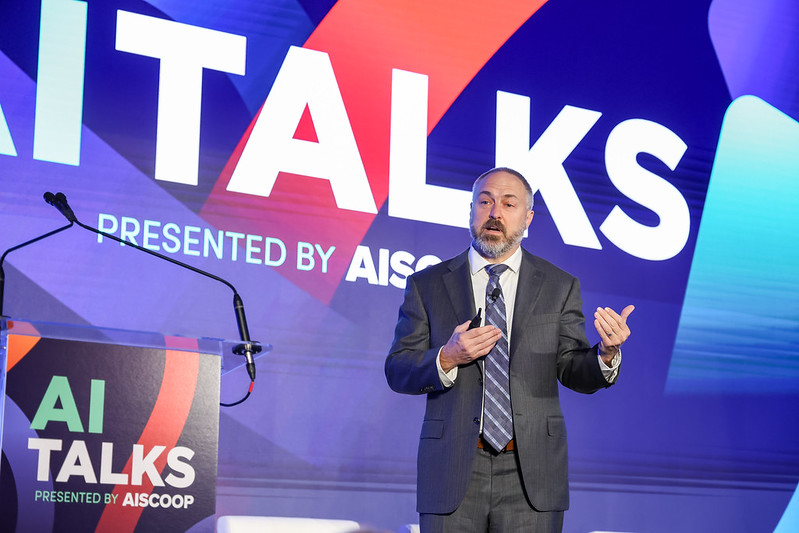- Sponsored
- Insights
How the ‘third wave’ of AI is transforming government operations

Over the years, numerous new technologies and tools have transformed the way government work is accomplished. But artificial intelligence is proving to be a real game-changer, revolutionizing the way agencies execute their missions.
During a presentation at AITalks in April 2024, Dr. William Chappell, VP and CTO of Microsoft’s Strategic Missions and Technologies Division, discussed the three waves of AI in government and what the evolution from bespoke to foundational AI means for agency operations.
The three waves of AI
According to Chappell, the first wave of AI in government was characterized by efforts to impart human expertise onto hardware, a painstaking process that relied heavily on scripted instructions.

Then, the advent of GPUs ushered in the second wave, accelerating AI’s capabilities beyond human levels in recognizing events and objects. “However, it was the underpinning hardware advancements that truly propelled AI forward, setting the stage for the third wave,” Chappell said.
The third wave signifies a significant shift toward contextual adaptation, where AI models possess a broad understanding rather than being tailored to specific applications. According to Chappell, this shift — predicted by the Defense Advanced Research Projects Agency in 2017 — marks a turning point in AI development. “No longer confined to bespoke models, AI now serves as a foundational tool with myriad applications across diverse domains,” he said.
What the third wave looks like for government
In this third wave, AI can perceive, learn, abstract and reason, paving the way for unprecedented advancements in government services. At the forefront of this transformation are foundational models like Microsoft’s Azure Quantum Elements, which enables scientists to accelerate the discovery of new materials with unparalleled speed and accuracy. By combining high-performance computing (HPC) with AI, researchers can sift through vast datasets and pinpoint promising candidates for further exploration.
Chappell pointed to a recent example where Microsoft’s Azure Quantum team joined forces with the Pacific Northwest National Laboratory to build a better battery by “developing new materials on a timescale that we haven’t seen before.”
In a matter of months, the group was able to screen more than 30 million potential materials digitally, narrow them down to 20 candidates, and then develop a revolutionary battery with 70% less lithium. “In the past, this would have taken years to develop,” Chappell said. “Examples like this will help change some of the biggest challenges that we have as a country.”
And the impact of AI in this third wave extends beyond scientific endeavors. Microsoft’s Planetary Computer, for instance, harnesses vast datasets from sources such as NASA, NOAA and the European Space Agency. Through natural language interactions, users can effortlessly navigate and glean insights from mountains of data, revolutionizing how information is accessed and utilized. While this demo was important for geospatial applications that make the data collected from satellites more valuable, this is representative of how any agency in the government can find answers from within the vast amount of data that they possess.
In addition, AI’s capabilities extend to cybersecurity, where it has become instrumental in identifying vulnerabilities in code that elude human detection. “That shift has happened over the last six months — and that is a very big deal for the U.S. government,” Chappell said. Initiatives like DARPA’s AI Cyber Challenge, which Microsoft supports, illustrate AI’s power in fortifying cyber defenses, offering a glimpse into a future where AI safeguards critical infrastructure.
As agencies navigate this new world of AI, Chappell says collaboration, experimentation, and ethical stewardship will be the guiding beacons, ensuring AI serves as a force for positive change in government operations. “The era of experimentation beckons, where users are empowered to shape AI’s trajectory and leverage its capabilities to fulfill their missions,” he said.
Learn more about how Microsoft can empower your organization with advanced AI.
This article was produced by Scoop News Group and sponsored by Microsoft.

